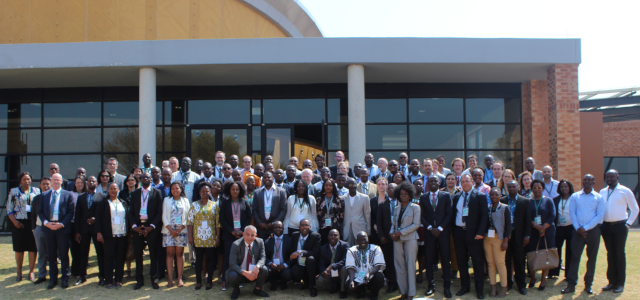The Workshop on Project Preparation for Transformative Climate Resilient GCF Water Projects in Africa is organized by Global Water Partnership, in collaboration with the African Water Facility (AWF), African Development Bank (AfDB), Africa Climate Change Fund (ACCF), Climate Resilience Infrastructure Development Facility (CRIDF), and Development Bank of Southern Africa (DBSA), in consultation with the GCF.
Water is the most-cited pathway through which countries experience climate impacts, and also the most-often prioritized sector through which countries seek to build resilience in their economies, their populations’ livelihoods, and their natural ecosystems, according to a 2016 UNFCCC survey of country climate action priorities. But when it comes to preparing and implementing adaptation projects, few of these water actions make it from priority lists to action on the ground.
Barriers cited include capacity limitations within countries, and weak coordination among in-country entities including Ministries of Water, Ministries of Planning, and Ministries of Finance. Further, access to finance – in early stage project preparation, as well as in doing detailed design studies, environmental and social impact assessments, gender analyses, and further, for project implementation – poses a constant challenge.
The GCF, a financing mechanism of the Paris Agreement, recognizes the tremendous potential of carefully designed water projects to provide adaptation and mitigation benefits. To access support from the GCF for climate resilience-building water projects, countries need to present projects designed for impact – reflected through prioritized project ideas, compelling concept notes, and comprehensive funding proposals. Technical assistance can help countries build a comprehensive understanding of the GCF’s funding modalities and proposal requirements, towards accessing GCF resources for water-related adaptation planning and projects.
This workshop presents the GCF, its mandate, investment criteria, and its operational modalities and procedures for delivering climate finance through different windows. It discusses GCF financing instruments, along with fit-for-purpose examples of climate rationale, project design, and financing instrument selection in the African context. It introduces participants to approaches for articulating incremental costs of climate-proofing projects. It explores solutions for DAEs to coordinate with NDAs, Water Ministries and other water-related sectors, in preparation of strong project proposals. Importantly, it draws from expertise, experience, and lessons of African NDAs and DAEs that have successfully secured GCF financing.
In her opening remarks DBSA Chief Financial Officer Ms. Boitumelo Mosako pointed out that she firmly believed that Africa’s solutions should come from Africa and, in this regard, was happy to officiate at this workshop that was set to find solutions for the climate change threat to the water sector in Africa. She noted that that DBSA was currently engaged in developing various financial instruments and focusing on promoting innovation, including innovation in technological solutions for climate change and water crises. She revealed that the bank was pleased to host the technical workshop on project preparation, which will provide a platform for National Designated Authorities and Direct Access Entities to receive strategic and technical support for climate resilient water investment.
Louise Hellen Brown, AfDB Coordinator, ACCF said that the focus on the sector will make it possible to go into greater detail in understanding the challenges that Direct Access Entities are struggling with in their efforts to develop climate resilient project proposals. The focus, she noted, will also make it possible to not only stop at theory but to go beyond - reviewing the case studies that the countries have generated and applying some of the GCF financing requirements to the projects so as to obtain a better understanding of how exactly the GCF works, and how to access the funds within the context of real examples.
David Hebart-Coleman, Climate Specialist, African Water Facility noted that the AWF has been in existence for 12 years during which it was supported interventions in climate change with an evolving focus. Initially, the focus was on building the knowledgebase for understanding climate change. This was followed by a phase on strengthening the safety of social systems from impacts of climate change.
Over 100 participants from 21 countries across the continent are attending the workshop. Designed as a catalytic event that will continue to accelerate water project preparation beyond these 3 days in Johannesburg, the workshop will launch a post-workshop mechanism – the Project Preparation Partnership for Climate Resilient Water Projects – via which countries may continue to exchange and access strategic and technical support for prioritization and preparation of climate resilient water security investments.
